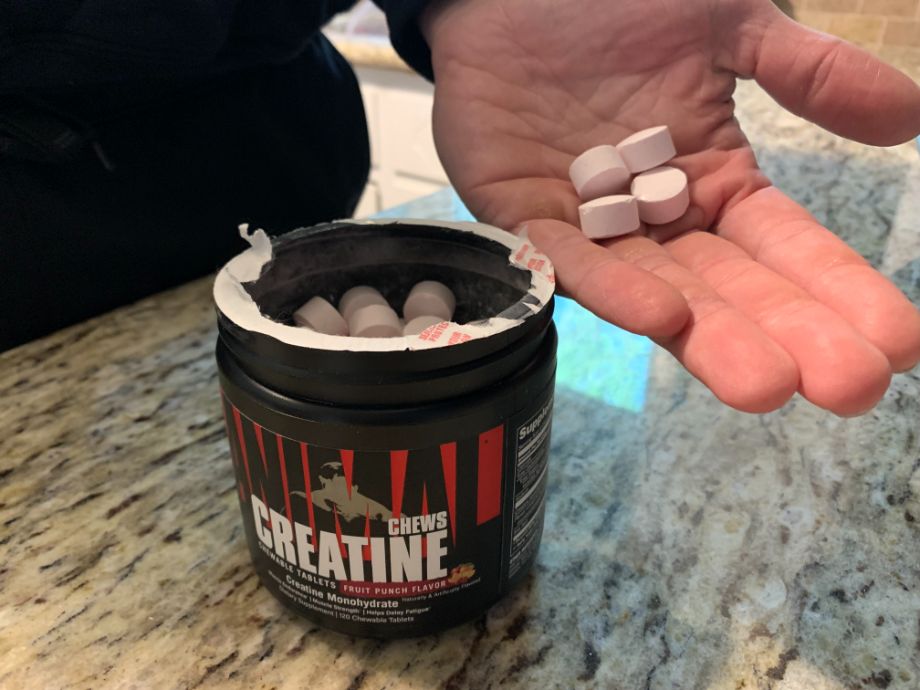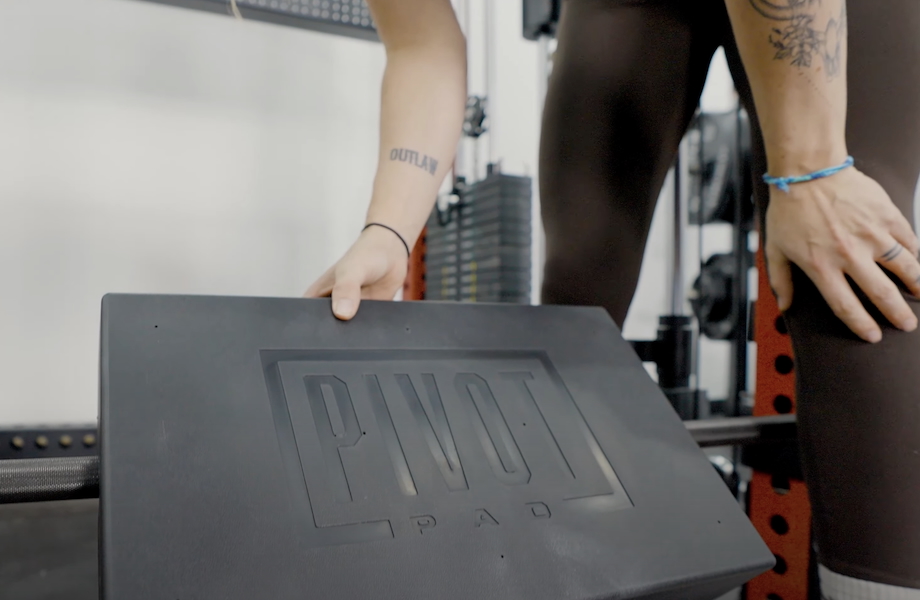It can be hard to believe that one single little powder can do all of the things bodybuilders and fitness enthusiasts are looking for: favorable change in body composition, boost in sports performance, increase in lean muscle mass, and even a surge in muscle strength. However, this is exactly what people claim you can get from creatine supplementation.
RELATED: Best Creatine
For those of you who may already know that creatine has the proven ability to increase lean muscle mass, you may be thinking that that’s cool and all, but does creatine make you stronger? Muscle growth is a generally great aesthetic feature, but some may be looking to turn to creatine for better athleticism that requires superior muscle strength. So let’s talk about creatine: what does creatine do and how does it affect your gym and athletic performance?
Medical disclaimer: This article is intended for educational and informational purposes only. It is not intended as a substitute for medical advice. For health advice, contact a licensed healthcare provider.
Does Creatine Make You Stronger?
Good news, the answer is yes! One very large review concluded1 that those who consistently supplement with creatine see a 5%-15% increase in strength. Now, this isn’t as dramatic as it sounds. For example, if you’re used to doing 12 reps on your rows, even if you’re in the group of people who see a 15% increase in strength, this translates to 1.8 more reps.
While these benefits can add up to some impressive strength and muscle gains over time, will creatine make you the Hulk overnight? Not really. The biggest strength increase was seen on bench press in a Penn State study2 by people who were able to do 30% more reps during 5 sets of 10.
Finally, it’s important to note that studies have shown3 that up to 30% will see no effects of creatine supplementation at all, so the results you see above will not apply to everyone. This is why it’s so important to adopt a solid diet and strength training routine instead of relying on a supplement to do all of the heavy lifting.
RELATED: How Long Does It Take for Creatine to Work?
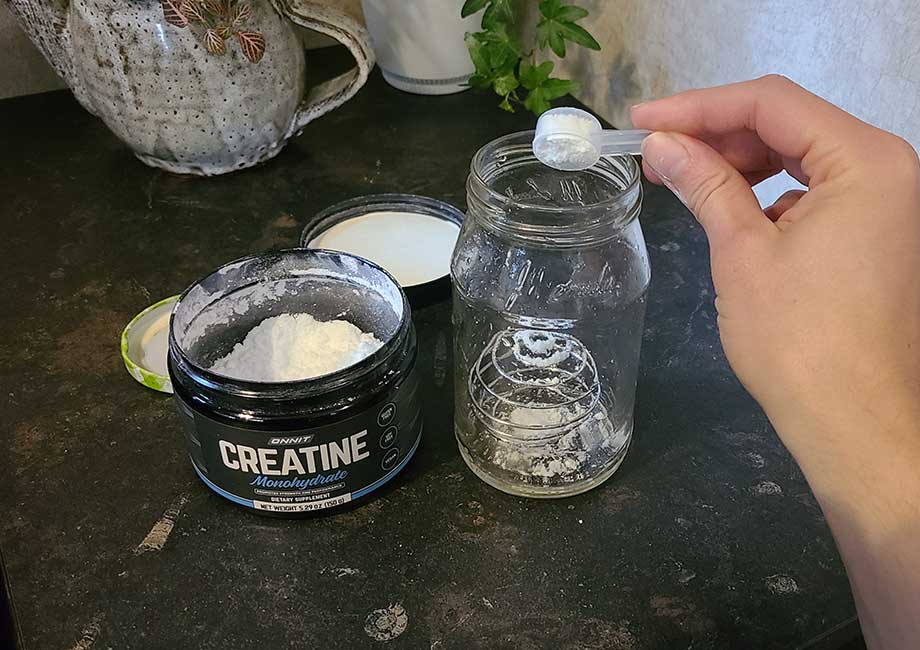
What Is Creatine?
Although it’s most commonly recognized as a dietary supplement among the weightlifting crowd, a variety of amino acids are used by the body to synthesize creatine naturally. You can also get this compound from animal products such as red meat, dairy, and seafood.
RELATED: Supplement Naturally with the Best Foods with Creatine
So, what does creatine do? Muscles store most of their creatine in a compound called phosphocreatine. ATP, which is the body’s energy source, is produced by mitochondria in the cells with its help. When engaging in high-intensity exercise, it is especially useful to have available.
Food usually provides us with all of the ATP we need. However, during physical activity like weightlifting, our muscle fibers cannot contract as powerfully when ATP begins to run out, resulting in failure and fatigue. It is therefore crucial to ensure your muscles have enough creatine stores in order to train harder and longer.
So, how does creatine work to provide the muscle cells with more energy? A phosphate group is removed from ATP (adenosine triphosphate) and turns into ADP (adenosine diphosphate). To prevent muscle fatigue, ADP must get its phosphate group back since ADP cannot be used for energy.
Supplementing with creatine increases creatine stores, which in turn raises the levels of phosphocreatine in the muscles. When this happens, the phosphocreatine is able to “donate” its phosphate molecule to ADP to make it ATP again. In this way, creatine supplementation can boost exercise performance by providing enough energy to train longer before reaching fatigue.
RELATED: Types of Creatine
Creatine and Strength Training
A review conducted in 20224 found that healthy young adults were able to build muscle more efficiently while engaging in creatine supplementation and strength training.
Interestingly, another review found5 that, even without consistent resistance training, older adults were able to improve their strength and build their muscle mass while supplementing with creatine. This is key, as more muscle mass and better strength have been associated6 with a lower risk of hospitalization, falls, and even premature death in older adults.
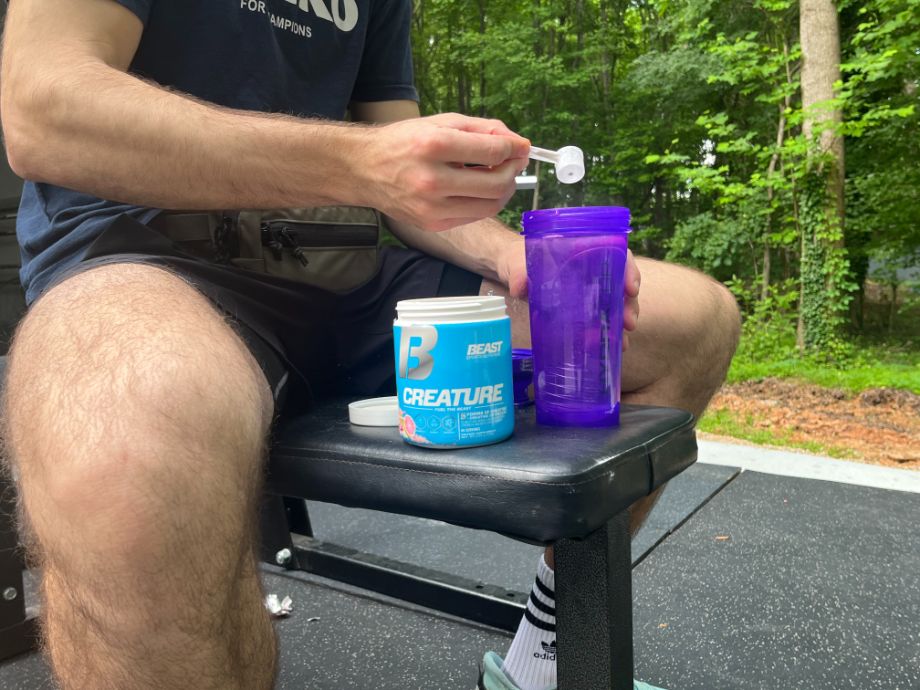
Don’t worry, aspiring bodybuilders: You don’t have to take creatine until you die if you want to maintain your muscle size. As long as you keep up a sensible diet and keep pushing yourself in your strength training program, your gains will be safe. However, don’t be alarmed if your exercise performance declines slightly when you decide to not use creatine any longer.
RELATED: Does Creatine Expire?
This is just because you don’t get the ATP production boost that comes with regular creatine supplementation. So, yes, you may notice a decline in strength, but if you made any appreciable muscle gains while on creatine, this shouldn’t matter too much.
If you do notice more than just a dip in exercise performance, like visibly smaller muscle size, it’s also important to know that many people hold a large amount of water in their muscle cells while on creatine, especially if they are doing a creatine loading phase, and this water is purged when creatine levels go down.
Benefits of Creatine
There are more benefits of creatine than just energy production and an increase in strength.
Helps Improve Athletic Performance
Creatine is also known among athletes to help boost performance during high-intensity exercise. A group of female soccer players in their early 20s supplemented with creatine and saw an increase in jump power and sprinting7 compared to the group who took a placebo.
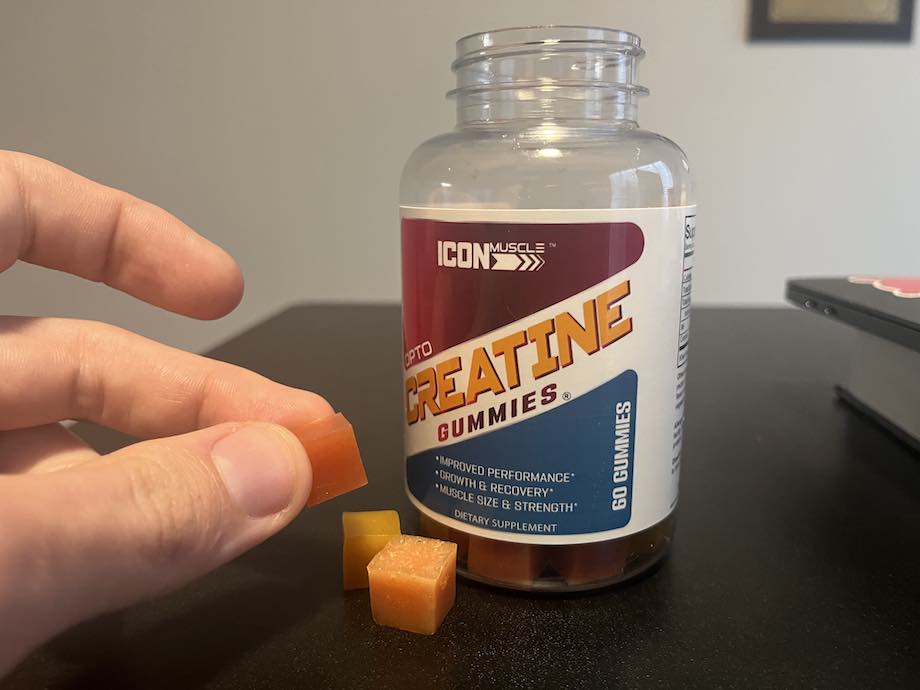
Can Help Boost Brain Function
You may not know that, much like your skeletal muscle, your brain stores phosphocreatine, too. Like all of your other organs, it also requires adequate ATP to function. Thus, this has led scientists to speculate that creatine can have some health benefits related to brain and cognitive function.
Vegetarians have notoriously low creatine stores due to their diets lacking methionine, one of the amino acids needed to synthesize creatine in the body. Red meat is also high in creatine, so people who eat meat usually have sufficient creatine stores, but this piece of the diet is missing with vegetarians. Thus, some studies have shown that creatine supplements were able to support brain function in vegetarians8.
RELATED: Best Vegan Creatine
Some randomized controlled trials have also found that creatine can help improve memory9 and even intelligence, but this effect seems to be the most profound in older adults aged 66-76.
Maintain Optimal Muscle Recovery
The ability of creatine to increase muscle energy has been shown to help improve recovery and reduce muscle soreness. This is accomplished by reducing muscle damage after multiple bouts of high-intensity exercise, which is particularly useful for athletes who engage in tournament-style competitions or who have two-a-day training regimens.
Helps Build Lean Mass
With a consistent resistance training regimen and a high protein diet that promotes a calorie surplus, creatine has consistently been shown to support efforts to build muscle10.
With the use of creatine, you can expect body mass to increase quite a bit when starting out. However, this gain is mostly water rather than fat tissue or even skeletal muscle. However, this water retention is what is needed to promote anabolism over time.
RELATED: Does Creatine Make You Gain Weight?
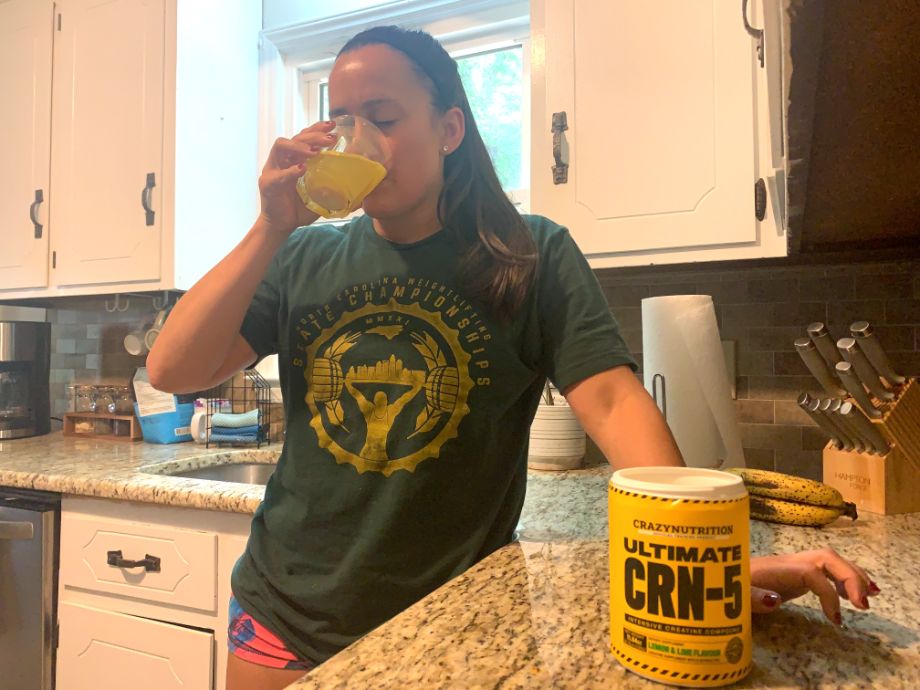
Can Improve Endurance
A group of cyclists who supplemented with creatine monohydrate saw a similar improvement in their endurance, but it should be noted these athletes also consumed carbohydrates along with their supplements and carbohydrates are also beneficial for endurance11 and general athletic performance.
During high-intensity exercise, it is important to keep in mind that the body’s ATP levels get depleted after about 10 seconds12. However, since creatine can help function as a type of extra energy source, you can perform for a few seconds longer. If there are any Olympic athletes reading this, you know that a few seconds is the difference between a gold medal and a bronze.
Side Effects of Creatine
Creatine is generally safe when taken as directed, but there are some beliefs (both valid and misconceptions) around the potential side effects of creatine supplementation.
GI Distress
One big mistake people make when starting to supplement with creatine is not drinking enough water. When this happens, they can experience adverse effects in their gastrointestinal system such as stomach cramps or diarrhea. However, these effects are most commonly seen during the creatine loading phase, which requires you to take 20 grams of creatine at a time, and not as much when taking the maintenance dose of 5 grams of creatine as long as you are staying hydrated.
RELATED: How Much Water Should You Drink with Creatine?
That said, you may have heard a rumor that one of creatine’s side effects is dehydration and muscle cramps. However, this has long been debunked13, along with the claim that creatine causes kidney disease.
This confusion came along because it was found that creatine supplements raise the body’s levels of creatinine, and high levels of creatinine are a clinical sign to dietitians in healthcare that the kidneys are damaged.
Creatine can only cause harm to the kidneys14 if you take it while already suffering from kidney disease, damage, or failure. If this is the case for you, it is not advised that you supplement with creatine monohydrate.
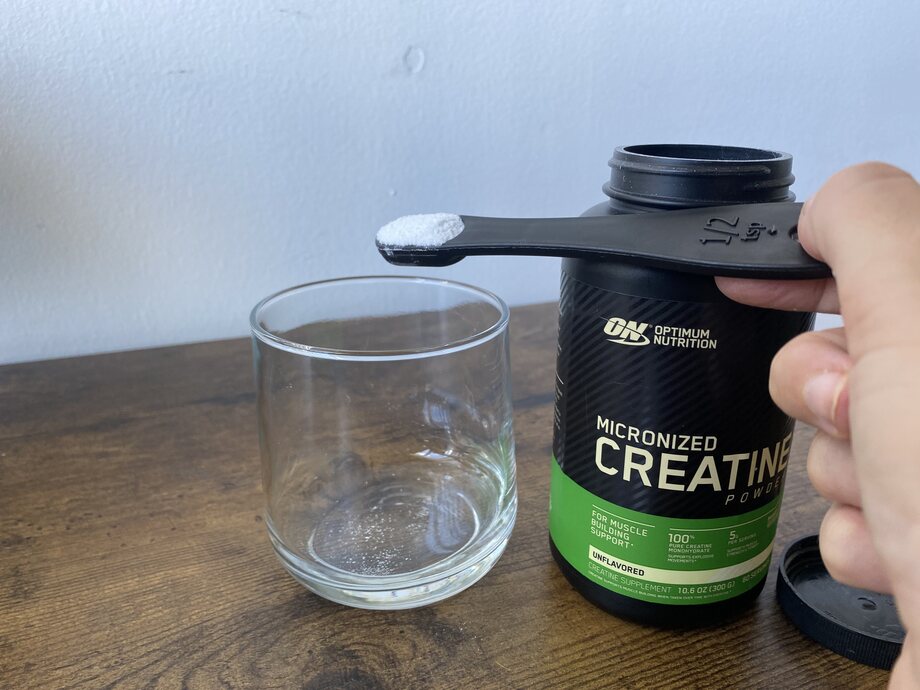
Water Retention and Weight Gain
As mentioned, one of the properties of creatine’s muscle-building mechanism is that, as creatine levels rise in the muscles, it also pulls water into muscle cells15. While this may be a concern for those competing in a weight loss event or an aesthetic competition when body weight or a puffy appearance matters, it’s generally harmless and has no adverse effects in the short term. It may just be tough to step on a scale and get an accurate view of your body weight during this time.
Does Creatine Make You Stronger? Final Thoughts
Creatine monohydrate supplementation has been proven to improve muscle strength by as much as 30%, according to some studies. However, studies have also shown that creatine can have little or no effects on a select group of individuals.
Either way, it would be unwise to engage in creatine supplementation with the hope that it will work miracles for your strength alone, especially if you don’t pay attention to your protein intake or don’t put enough effort into your strength training. That said, it can be a solid supplement to help improve your exercise performance in general and, given its safety and affordability, there are plenty of reasons to do so.
Does Creatine Make You Stronger? Q&A
Are creatine gains permanent?
Creatine gains will not be lost after you stop taking the supplement as long as you maintain a favorable diet and consistent resistance training regimen. However, muscle creatine levels will decline when you stop taking it, so strength gains may go down slightly.
How long does it take for creatine to make you stronger?
There are many individual factors that influence how quickly you can expect to see the effects of creatine supplementation. Staying consistent with your supplementation, diet, and exercise routine is the best way to see fast results.
What are the disadvantages of creatine?
You can see an increase in a puffy appearance or body weight when you start taking creatine. However, there are not many downsides to creatine monohydrate supplementation outside of this harmless side effect.
Do I have to take creatine to get stronger?
No! You can just as easily build strength with a high-protein diet and a solid training program without taking creatine.
These statements have not been evaluated by the Food and Drug Administration. This product is not intended to diagnose, treat, cure, or prevent any diseases.
References
- Kreider RB. Effects of creatine supplementation on performance and training adaptations. Mol Cell Biochem. 2003;244(1-2):89-94.
- Volek JS, Kraemer WJ, Bush JA, et al. Creatine supplementation enhances muscular performance during high-intensity resistance exercise. J Am Diet Assoc. 1997;97(7):765-770. doi:10.1016/S0002-8223(97)00189-2
- Syrotuik DG, Bell GJ. Acute creatine monohydrate supplementation: a descriptive physiological profile of responders vs. nonresponders. J Strength Cond Res. 2004;18(3):610-617. doi:10.1519/12392.1
- Wu SH, Chen KL, Hsu C, et al. Creatine Supplementation for Muscle Growth: A Scoping Review of Randomized Clinical Trials from 2012 to 2021. Nutrients. 2022;14(6):1255. Published 2022 Mar 16. doi:10.3390/nu14061255
- Candow DG, Forbes SC, Chilibeck PD, Cornish SM, Antonio J, Kreider RB. Effectiveness of Creatine Supplementation on Aging Muscle and Bone: Focus on Falls Prevention and Inflammation. J Clin Med. 2019;8(4):488. Published 2019 Apr 11. doi:10.3390/jcm8040488
- Li R, Xia J, Zhang XI, et al. Associations of Muscle Mass and Strength with All-Cause Mortality among US Older Adults. Med Sci Sports Exerc. 2018;50(3):458-467. doi:10.1249/MSS.0000000000001448
- Ramírez-Campillo R, González-Jurado JA, Martínez C, et al. Effects of plyometric training and creatine supplementation on maximal-intensity exercise and endurance in female soccer players. J Sci Med Sport. 2016;19(8):682-687. doi:10.1016/j.jsams.2015.10.005
- Kaviani M, Shaw K, Chilibeck PD. Benefits of Creatine Supplementation for Vegetarians Compared to Omnivorous Athletes: A Systematic Review. Int J Environ Res Public Health. 2020;17(9):3041. Published 2020 Apr 27. doi:10.3390/ijerph17093041
- Prokopidis K, Giannos P, Triantafyllidis KK, Kechagias KS, Forbes SC, Candow DG. Effects of creatine supplementation on memory in healthy individuals: a systematic review and meta-analysis of randomized controlled trials. Nutr Rev. 2023;81(4):416-427. doi:10.1093/nutrit/nuac064
- Rawson ES, Volek JS. Effects of creatine supplementation and resistance training on muscle strength and weightlifting performance. J Strength Cond Res. 2003;17(4):822-831. doi:10.1519/1533-4287(2003)017<0822:eocsar>2.0.co;2
- Tomcik KA, Camera DM, Bone JL, et al. Effects of Creatine and Carbohydrate Loading on Cycling Time Trial Performance. Med Sci Sports Exerc. 2018;50(1):141-150. doi:10.1249/MSS.0000000000001401
- Butts J, Jacobs B, Silvis M. Creatine Use in Sports. Sports Health. 2018;10(1):31-34. doi:10.1177/1941738117737248mal levels may not notice any benefits.
- Dalbo VJ, Roberts MD, Stout JR, Kerksick CM. Putting to rest the myth of creatine supplementation leading to muscle cramps and dehydration. Br J Sports Med. 2008;42(7):567-573. doi:10.1136/bjsm.2007.042473
- Vega J, Huidobro E JP. Efectos en la función renal de la suplementación de creatina con fines deportivos [Effects of creatine supplementation on renal function]. Rev Med Chil. 2019;147(5):628-633. doi:10.4067/S0034-98872019000500628
- Antonio J, Candow DG, Forbes SC, et al. Common questions and misconceptions about creatine supplementation: what does the scientific evidence really show?. J Int Soc Sports Nutr. 2021;18(1):13. Published 2021 Feb 8. doi:10.1186/s12970-021-00412-w


